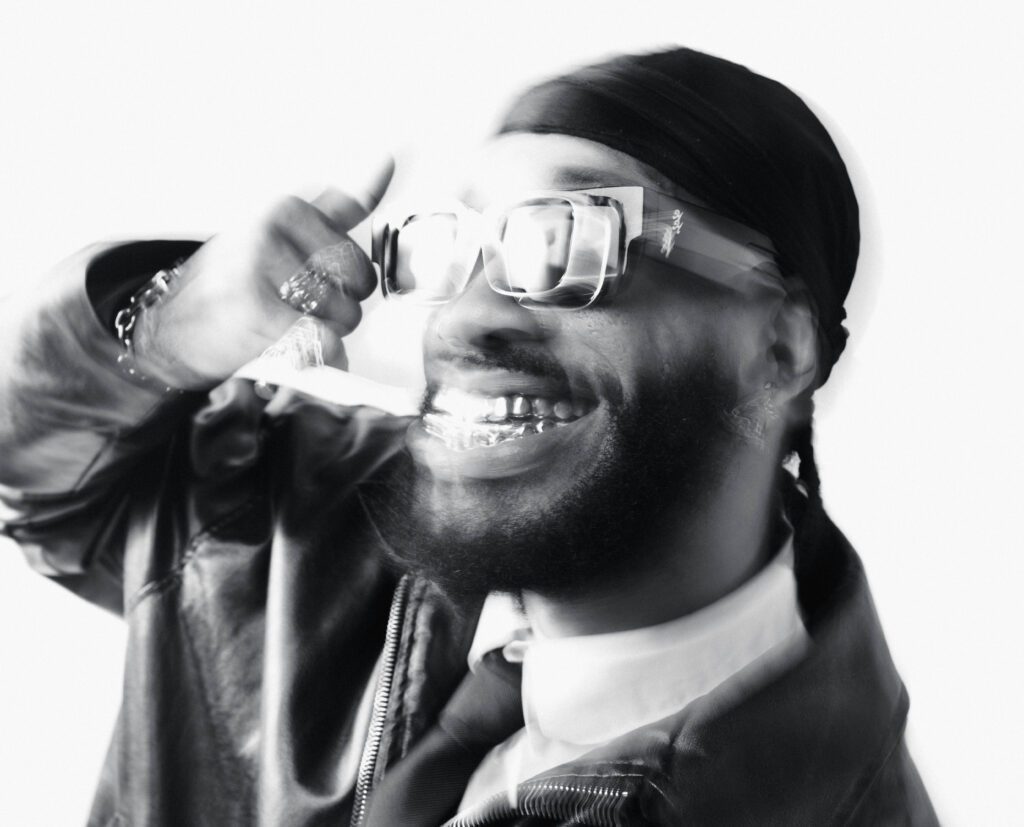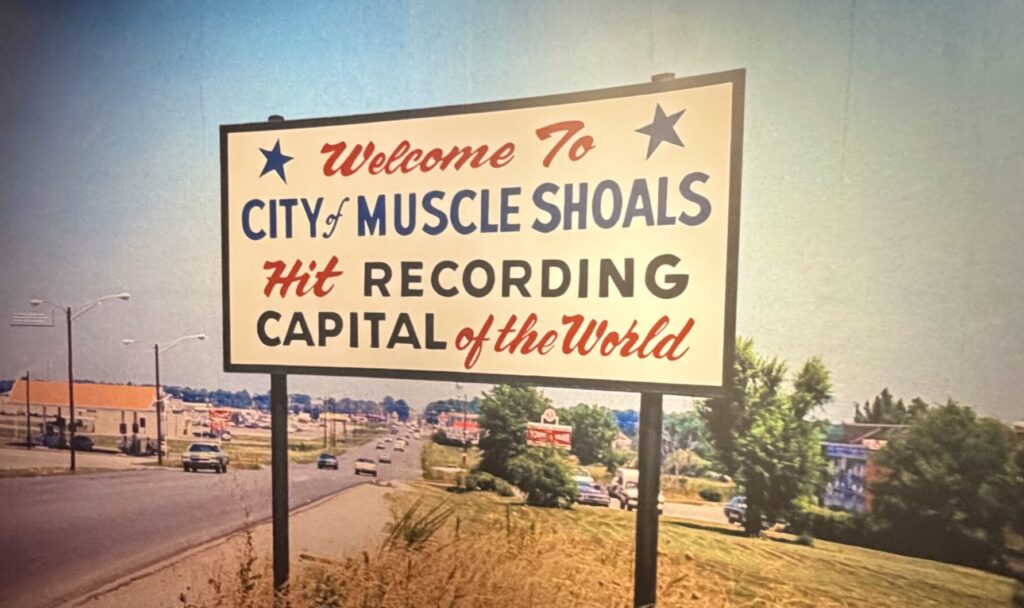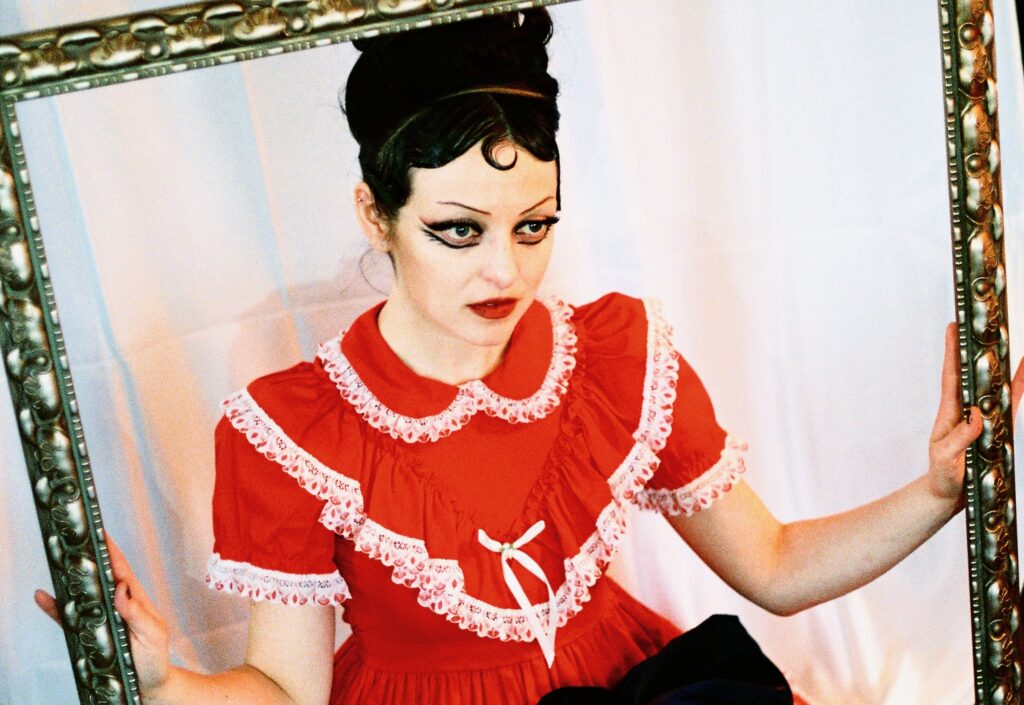Nashville’s own Ann Powers recently crowned Matty Healy as a “dirtbag” in a profile for NPR Music. It’s a title that the smarmy lead singer of The 1975 might wear with a bit of pride, if not, a chuckling acceptance. He revels in being a very-online-guy and a bit of a provocateur.
In this WNXP interview, Healy refers to Louis C.K. as one of the greats of comedy. He calls Jack Antonoff a “New York Jew” while explaining why he loves Antonoff and why he’s so funny. And he talks about writing lyrics that aren’t just about his “dick.” But at the same time, he also shows great empathy for what it is to be a young woman on the internet and understanding of the privilege he has as a man of a certain age, who’s able to separate his online and offline lives. Healy’s knowing smile is the thing that makes him so ripe for think pieces and such a polarizing subject. He bounces around from critiquing the callousness of post-modern art to holding his nose at people who take themselves too seriously to joking about any any subject that comes up, including himself. In other words, to talk to Matty Healy is like listening to a song by The 1975.
Justin Barney: I would just like to say that as a 30-something man who is very chatty and spends too much time on the internet, I feel very seen by your music.
Matty Healy: Thank you, man. You’re one of me. I feel you already.
JB: I think that it’s like every single The 1975 song is a great thing that you do. I think it’s a great thing for us to look forward to and to witness a bunch of synthesizing. In this one, you say, “Sorry if you’re living and your 17.” How is living now at 17 different from when we were 17?
MH: The things that you are expected to worry or be concerned about are so much larger. When I was 17, I was thinking about, like, cars and making out with girls and making music and delivering Chinese food. I wasn’t thinking about, like, global economic collapse due to climate change. Or I wasn’t thinking about, you know, systemic oppression. I do genuinely empathize with kids that have the weight of the world on their shoulders due to this kind of incessant incentivization for everybody to express themselves on the Internet.
JB: I think also like you’re expected to participate in it in a way that we weren’t. We were just pre-Twitter. We talked about issues in class, but there was nothing beyond that that we could do or were expected to do about them.
MH: Yeah, but that’s funny too, even the language that you use there. If you think about what people our age say, “I’m going to take a step back from social media.” What we’re saying is, “I’m going to revert to a time and a place that I remember before social media had this effect on me.” There’s a generation now very close to our generation that doesn’t even understand that concept, you know? So, within that is this terrifying idea that we thought Big Brother and The Truman Show were sci-fi concepts that very, very quickly, and with no discussion, became reality.
I think that that the moral panics that we were familiar with were still about one-on-one communication. And I think that that’s why it’s very different with social media. Because we’re very used to the moral panic. We’re very used to the older generation being worried about how the technology is going to impact the minds of the younger generation. What we have now is a model where a 14-year-old girl, or boy — but the data suggests that it’s more profoundly affects young girls — a 14-year-old girl puts something out into the world and then awaits for a reaction. And that reaction is programed to elicit the right amount of dopamine to keep them on the platform for longer. It’s a very malevolent way of being. I think that is a difficult thing to deal with if you’re a young person.
JB: Isn’t putting out an album kind of like that, but on a really heightened level?
MH: Yeah, I suppose so. But not for me, because if you want to stay within the analogy of social media, then I have a wall that a lot of young people don’t have. Because when I’m on social media, I’m saying “This is what I do.” But a young person on social media saying, “This is who I am.”
Now, the emotional effects of those things are very, very different. Because what I’m doing is essentially constructed, even though I like to blur the barriers. And I am real. But I’m still presenting what I do. So something can be critiqued. Whereas if you’re a young person and you’re like, “This is who I am,” and someone says, “I don’t like it,” that’s going to really hurt you. You’re not designed for that, you know? And that wouldn’t happen in the street, you know? Someone wouldn’t come over and tell you that they didn’t like your outfit on the street.
JB: Yeah. That is a really good point and I have never thought of it like that.
In the bio that was sent me, it said that in this album you talk about whether the concept of true love is possible or whether we’ve been sold a bill on this idea of sentimentality. And I know that you didn’t write that, but I like this idea of sentimentality. I think speaks a bit to the album. This is saying that you speak against sentimentality. Do you think sentimentality good or bad?
MH: Well, it’s scary. That’s what it is. That’s what I’m talking about. It’s harder. Like you said, you’re a 30-year-old man who spends a lot of time on the Internet. So for somebody like you or me, in the face of earnestness, with a compliment, or something objectively sweet, it’s always easier to make a joke. And I’ve always done that. I’ve become defined by doing that. And I think a lot of art in the past 20 years, this postmodern has all been very deconstructive and meta and self-critical and all those kind of things. And it’s great. And it’s sexy. And it’s nihilistic. But eventually it’s like, where’s the moral substance? Where’s the truth?
If you dethrone sincerity with irony, you get an equal tyrant. It’s equally annoying eventually.
You know, some people are good at writing about small things and some people are writing great at writing about big things. Like I always say, David Byrne could write a masterpiece about a pair of scissors, but he’s not going to write about love. So my challenge was to not write about my dick, or this one thing that happened on a night out or this or that. It was like, “Why don’t you try and talk about love? Why don’t you try and talk about, your fear of not…you know, your inability to do it, but your desire to talk about it so much.”
JB: I think you do a really good job of doing that, of still talking about your dick, but also talking about the big picture within that.
MH Yeah, 100%. I hope you got strike a balance, right?
JB: On this album you worked with Jack Antonoff. What is Jack Antonoff’s sense of humor like?
MH: The same as mine. He’s just really funny. We love jokes. Jack is funny first. We go by the Seinfeld idea, like, “Do you want to go to dinner with this person?” Like, “Are they funny?” That’s all I’m interested in.
I’m only interested in funny or talented people and I’m not really interested in talented, unfunny people because they’re the worst.
I think that he’s very funny. And he’s like a New York Jew, you know? He’s got all the jokes. You know? He’s the best.
JB: I think I think that is what I look for too. My best friends are joke first. Because then you can get to sincerity, you know?
MH: Well, it’s the quickest way to the truth. If you’re in a room and something makes you laugh, that’s because there’s a truth in it. If you go, “Oh, sh**,” it’s because they’ve said something that is true. Maybe taboo or maybe not. That’s what comedy is supposed to be about. It’s supposed to be revealing. It’s not supposed to affirm things. It’s supposed to, like, reveal things, you know?
That’s why comedy and music are very, very close. I hate comedy music, unless it’s Bo Burnham. It’s just a way of telling a story. And for me, the best standup comedy, you know, [George] Carlin, Chris Rock, Louis C.K.: The greats. What they have the ability to do is take the biggest ideas and convey them in the fewest words possible. That’s all I’m trying to do. And the funnier, the better, really.
JB Music can often be so humorless humor because there is nothing worse than telling a bad joke.
MH: Exactly. And I will never defend bad comedy. Because this is the whole thing. I will be like, “Listen, there’s some bad jokes being told for the wrong reasons and I’m never going to defend that. But I will battle to the death, to defend the right to make a joke about any topic. It just has to be a good joke.”
JB: So we are at the end here and I would like to know, what’s a song that you can’t stop listening to? Or since we’re talking about humor, a song that is really good at conveying humor.
MH: Both can be summed up in this song. It’s called “Girls” by The Dare. It’s just like this band or it’s a guy that coming out of New York. They’re pretty new, but they’ve got this song called “Girls” and it’s sooo sick. It’s only like a minute and a half. I just have a loop that just plays around and around. It’s so good. It’s my favorite song of the moment.
The 1975 are playing at Nashville’s Municipal Auditorium on November 13th.




